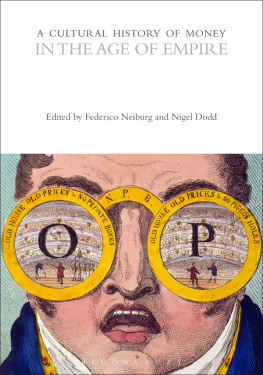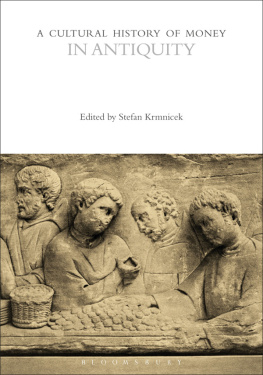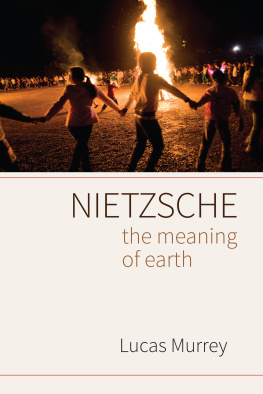No part of this publication may be reproduced, stored in a retrieval system, or transmitted in any form or by any means, electronic, mechanical, or otherwise, without the written permission of the publisher.
Schaps, David M.
The invention of coinage and the monetization of Ancient Greece / David M. Schaps.
p. cm.
Includes bibliographical references and index.
ISBN 0-472-11333- X (cloth : alk. paper)
1. Coins, Greek. 2. CoinageGreeceHistoryTo 1500. I. Title.
Preface
WHEN MY PREVIOUS BOOK left my hands, somewhat more than twenty years ago, I decided, in my youthful self-confidence, to undertake a project that had defeated two of the great scholars of the economic life of antiquity: an annotated catalog of all the known prices from the ancient Greek world. Gustave Glotz had left behind at his death a manuscript including all the prices known to himsurely a large percentage of all the prices known to anyone at that time. Fritz Heichelheim proposed to publish Glotz's manuscript, but I undertook to collect all prices that I could and publish them on my own.
It was an unfortunate time for such a decision; after two years of assiduously recording boxes full of index cards, I realized that the work I was doing would become hopelessly out-of-date as advances in computing made the words of Clement of Alexandria and the inscriptions of Acraephia as easily available as the words of Thucydides and the inscriptions of Attica. The
In the course of this work, however, it became apparent to me that much of the information could not be dealt with intelligently without addressing certain questions of principle. Disagreements between primitivists and modernists; among substantivists, formalists, and Marxists; among historians, economists, philologists, and anthropologists made problematical the interpretation of even the simplest item of economic evidence. Increasingly, I found myself constrained to try to come to an understanding among the various competing models for the ancient economic world. It became, moreover, increasingly clear that the meaning of an exchange in the archaic period was very different from what it became thereafter. Something had happened with the introduction of coinage.
I became convinced that the invention of coinage and its adoption by the Greeks involved an intellectual change of great importanceto put it clearly, if too simply, that the notion of money as we think about it, although it surely had antecedents, was something that had not been thought of before the Greeks adopted coinage. I became convinced, moreover, that this new concept arose at a time when it was particularly appropriate to the Greeks, for whom it offered a way of organizing and of thinking about many crucial matters for which their existing institutions were inadequate. I determined to write a short book about the invention of coinage.
As I came to discuss the effects of that invention, however, I discovered that they were by no means uniform. In some areas of society, the effects of monetization were immediate; in others, much slower. In some, they were complete; in others, much less so. The question of the effects of monetization grew so large that it now occupies more than half of the book to which it was once thought of as a mere concluding chapter.
There will perhaps be those who think that the current book is, as Andy Capp once complained about a shot glass full of six-year-old whisky, a bit small for its age, not to mention its subject. I do not deny that the subject is a complete analysis of the role of money in Greek politics. Beside such a project, my original planned list of prices would have shrunk into insignificance. Suffice it to remind the reader that the vastly erudite Bckh, the father of modern scholarship in ancient realia, devoted almost a thousand pages to the economic management of the Athenian state alone and that Kallet-Marx's recent study found quite adequate material for a densely argued book without going beyond the first half of Thucydides.
I have tried throughout only to sketch the ways in which Greek thought and behavior were changed by the introduction of money. Even so, the subject was a large one, requiring me to deal with every age and every aspect of life. It is hardly an exaggeration to say that nearly every paragraph in this book could be expanded into an illuminating article. I have tried to provide in this book a framework in which continued research can take place. By this approach, I hope to have won everybody's thanks: the thanks of the scholars for having offered them fertile fields for further research and the thanks of the less committed for not having inflicted all of that research upon them.
There is an important thread of recent scholarship, of undoubted relevance to my theme, that I have touched lightly, if at all: the explication of themes of exchange in literature, were highly developed among the Greeks before the introduction of coinage and had much to do with the way in which coinage developed in Greece. It follows that not every exchange relationship can be seen, even metaphorically, as a type of monetary relationship and that the extent to which coinage changed the Greeks' way of actingthe subject of the present bookmust be investigated independently before we can establish to what extent the observed exchange terminology is a reflection of monetization.
I began work on this book in 1992; at that time, as far as I know, little work had been done on the subject, and my ideas were entirely my own. Under pressure from my university to prove that I was doing something, I have been speaking about the invention of coinage at conferences since 1994. Since then, I have occasionally heard and even read some of my own ideas presented by people who apparently thought they were their own, and perhaps they were (if, after all, my ideas are correct, there is no reason why somebody else should not have realized them as well), although on occasion, it became clear that the people involved had actually heard the ideas from me. Since my hopes for eternal life do not base themselves on this book, I see no need for arguments over precedence. Suffice it to say that I have tried to be exceedingly scrupulous not to peddle anyone else's work or ideas as my own.
For the footnotes, I have preferred a shortened citation form that utilizes short titles where necessary (e.g., Finley, Ancient Economy ), although the author-date form (e.g., Finley 1985) is today more commonly used in the humanities. Perhaps better scholars than I remember without a moment's reflection the publication date of every book they have ever seen and so know at a glance what book is being referred to by a surname and a year. In case, however, there are those who remember titles better than year of publication, I have given a short title when referring to an author for whom more than one work appears in the bibliography. I apologize, lest anyone suspect me of the opposite, for the fact that, although I have tried to be certain that I am not misrepresenting anyone's opinions, I cannot claim to have read every word of every item mentioned in the bibliography.












 Printed on acid-free paper
Printed on acid-free paper